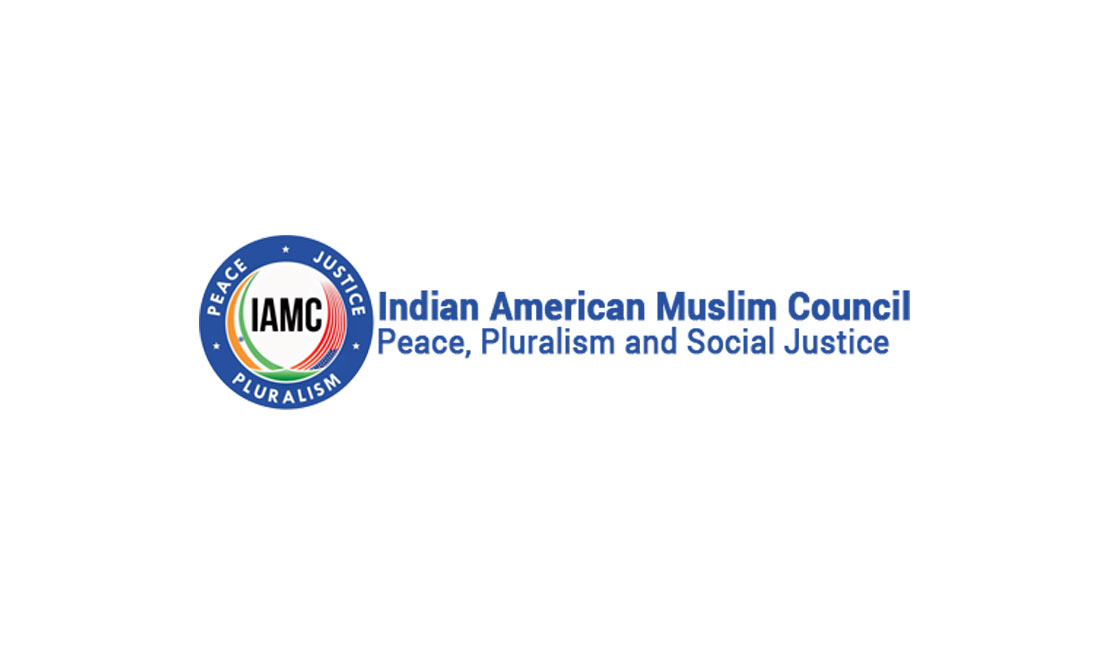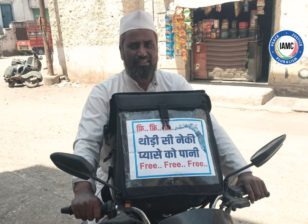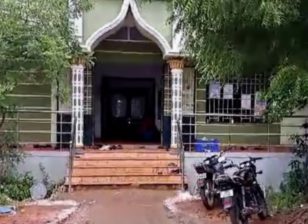Renuka Shahane on how to slay trolls and influence people
In politically-divided Bollywood, Renuka Shahane occupies the middle ground, from where she engages with all shades of opinion. The actor on trolls, hate and her trust in moderate Indians.
“But at the core of both our beliefs are secularism and democracy. There’s a big distinction between being a Hindu and Hindutvawadi. The latter is a political system the BJP appropriated for electoral gains. An overwhelming number of Hindus do not conform to this militant view. It is important to always and constantly make that distinction. Hindu is not Hindutvawaad, and Hindutvawaad is not rashtrabhakti (patriotism) …”
She was someone they all wanted to take home to their parents. They didn’t know she would end up on Twitter — with 45,000-odd followers and very forthright views.
Renuka Shahane entered middle-class living rooms as the co-host of the iconic Doordarshan show Surabhi in the 1990s. In Hum Aapke Hain Koun…! (1994), she played Pooja bhabhi, the perfect accommodating Indian woman. But on social media, two decades later, the 54-year-old is a part of a common-sense counternarrative to increasingly divisive views. Shahane schools trolls who come after her secular and liberal views in English, Hindi, Marathi and Gujarati — her ripostes are always polite and sprinkled with humour. Her knowledge and lived experience as a moderate Hindu makes it difficult for right-wing hardliners to dismiss her. In 2019, if Pooja bhabhi were to gather her great Indian family together, she would not just dance to Mai ni mai but also tick them off for spreading fake news and demeaning India’s secular core.
Excerpts from an interview:
Were you once criticised for ‘smiling like a toothpaste ad’ on Surabhi?
The feedback came from renowned TV critic Amita Malik, no less. She said, ‘Who is this giggly girl talking about Indian art and culture?’ Because I admired her writing, the next time I went for the shoot, I asked all the questions seriously. (Co-host) Siddharth Kak asked if I wasn’t feeling well. I told him, ‘This is not how one is supposed to talk about Indian art and culture!’ He said, ‘You don’t know how much people have liked you. They may not be critics but they are our audience.’ That’s how I went back to smiling.
Was it your first encounter with critics?
Well, my mother (writer Shanta Gokhale) is a critic. We’ve grown up with constructive criticism. In a typical Maharashtrian household, in any case, you are never praised sky-high for anything. It’s like: ‘Tyaat kaay? (What’s the big deal?)’ Critics never scared me, in fact, the love I got on that show scared me. It’s not something a middle-class Maharashtrian girl is used to — that total devotion, practically bhakti-bhaav.
Bhakti brings me to the next question: How do you get trolls on Twitter to respond in full sentences, courteously?
I think it’s because of my image. What they saw of me in Hum Aapke Hain Koun…! and Surabhi conformed to their image of a ‘positive, Indian woman’. The response is not outright rude to start with. They always start by saying, ‘Coming from you, it’s a shock.’ Or ‘Renukaji, how can you say that…?’ I’m also married to someone who is extremely religious, but not ritualistic (actor Ashutosh Rana). So, people wanting to hit out at us know they can’t talk to us about Hinduism, because we know it. We’ve read about it. We also live it.
On Twitter recently, you posted a picture of a sunrise and someone dragged politics into it. How to deal with killjoys?
Sympathetically! I mean, how sad another person’s life must be for them to dislike a beautiful picture of sunrise and bring politics into it. I don’t usually run away from comments. But if someone has a genuinely intelligent point of view, I’ll continue. I studied psychology, so everything about human nature interests me. People with opposite views interest me more. In the beginning, I spent hours arguing and it was frustrating. Then I figured the algorithm of repeated words, and started laughing at people who were doing it as a job.
Are you on family WhatsApp groups and do things get heated?
My sasuraal is very large, so we have a very large WhatsApp group. Of course, discussions get heated. On friends’ groups, too. But we decide not to discuss things that will lead to bitterness. But we have healthy discussions of very extreme views also. I love discussions with young people, who sometimes have a very self-centred view of things.
Have you tried understanding the right-wing viewpoint?
I’m not right-wing, so I can’t understand that mindset. Because for me it is such a simple thing — to be liberal and secular. It is considered a very bad word these days. But that does not change who I am. Many who talk down to liberals are very liberal themselves in the way they live and when it comes to their children. But they believe only a certain kind of liberal has had power so far in this country — for instance, they have a lot of angst against the press because it has not been kind to the right-wing point of view. It is a question of character-assassinating people who they identify as enemies.
Where does that resentment come from?
In our politics, the right-wing has always hated the Congress, even before Independence. They have carried this wound of Ashwatthama for so long. Because Ashwatthama is chiranjeev (immortal), he has to move around with that wound. It’s never going to be healed. They will attack every ideal that they cannot accommodate in their way of thinking. But they do not realise that a lot of very important things that have happened in their lives are because of the liberal, secular culture. If you try to take those things out of your own life, you might not like what you become…If you force out one group, who will you hate? You will start hating small sub-parts of your own culture, till it comes to you…I’m not saying only right-wing. Even a left-wing thought which becomes violent is unacceptable.
Surabhi was about Indian culture, but not shoved down your throat. Has that idea become more repressive now?
No, unless it has become violent. We should be more flexible in our views. We might hold a certain view of the way the world should be, others might view it differently. As long as there’s a conversation on a decent level, nobody should force their opinions on anybody. Culture is the way we are living — it is as wide as that. My Indian culture will be different from your Indian culture. In a country as diverse as ours, we can’t tie down culture to one or two points of view — and that includes my point of view.
In Surabhi, we presented the kind of Indian culture that we were proud of… united by its diversity. If it was any homogenous kind of culture, it wouldn’t have been India.
What’s probably the strongest criticism you heard about Hum Aapke Hai Koun..!?
That it was a music video! The critics completely panned it. A lot of people asked me how I could be in such a regressive film. ‘How could women as educated as Madhuri (Dixit) and you play such servile roles?’ But I didn’t think Pooja was servile. Like me in real life, she didn’t believe in taking out the sword every time she wanted to make a point. Also, I must tell you that some makers of feminist films can be extremely regressive off-screen. I’d prefer to be in a film directed by Sooraj (Barjatya)ji.
Did you encounter abusive behaviour?
Once, I was propositioned on behalf of a producer. I didn’t even understand what the person was talking about! I said I wouldn’t meet him at a hotel. He said, ‘So you only want to live in your nest in Shivaji Park. You don’t want to become bigger than that.’ I said I’m very comfortable in Shivaji Park.
Till some years ago, Indian films had a very clichéd but charming portrayal of communal harmony. Now an ad showing communal harmony invites controversy.
It is a reflection of our times that we have to spell out support for those who face the brunt of these circumstances. For years, we’ve had to deal with Islamic/Pakistan-sponsored terrorism. So we tend to look at everything in that context. But it’s not easy when constantly you are trying to say not all Muslims are terrorists. Muslims have to keep reiterating their calls for peace. It’s an uphill battle for them. I feel one should not talk about religions as ‘peaceful’ and ‘not peaceful’. For our country, it has become such a fragile sort of ‘living-together’ that effort has to be made to preserve that peace.
Do you worry about majoritarian excesses?
It can lead to people being killed due to hate — what happened in the lynchings. People were killed for no reason, and what brought it on was just simple unprovoked hate. But still, there are people — a lot of Hindus — who are moderate in their thought. And, therefore, our country will not go into that extremism. Have faith in the majority of people in our country — of whatever religion. We all want our children to have peaceful lives, even the most reactionary of us.
Tell me about how your secularism and your husband’s faith in religion coexists.
He’s religious and follows a spiritual guru. He comes from a joint family, which is very different from my upbringing. But at the core of both our beliefs are secularism and democracy. There’s a big distinction between being a Hindu and Hindutvawadi. The latter is a political system the BJP appropriated for electoral gains. An overwhelming number of Hindus do not conform to this militant view. It is important to always and constantly make that distinction. Hindu is not Hindutvawaad, and Hindutvawaad is not rashtrabhakti (patriotism) … I would be scared if they got 60 per cent of the vote and changed the Constitution. We should trust the system. It has inherent checks and balances, and there are different points of views within political parties. But everyone should also know that many of us are willing to fight for our Constitution. We have seen that during the Emergency; people will fight for democracy, and stand up if the present Constitution is threatened.
You worked with Paresh Rawal and Anupam Kher — on the opposite side of the political spectrum from you.
Pareshbhai is a very dear friend of mine. If we run into each other, I know I’ll have a great conversation with him. I won’t talk politics because we disagree. I last met Anupamji in a very official sort of function and we’ve always been very civil to each other. I have great respect for both of them as actors. I won’t let political disagreements cloud my judgment of them as actors.
Have many friendships snapped because of disagreements?
They have. Not many. A lot of people have a very balanced view on this, they don’t let it rule their lives. For some, this is the be-all-end-all. Those people I’d rather not have in my life.
Does it hurt?
Of course, it does. Relationships that go far back should not be broken due to politics.
Is there a tilt towards majoritarian politics in Bollywood?
There always was. Apne apne ghar mein sab aise hi thhey. Now, it’s because everyone needs to proclaim an identity on social media. People expect you to wear your politics on your sleeve. You have to take sides — and now!
Is it okay to sit on the fence?
Definitely! Because a lot of people really do not know. It took me a long time. I used to think I was apolitical. With the entry of social media, when news became so accessible, suddenly you were part of the process. I started thinking of the politics of our country during the Anna Hazare movement. I was a big AAP supporter in 2014 if you go back to my tweets. Then I got disillusioned with it all.
Do you identify with a political party?
No. I am very dissatisfied with people in each party, with the way politics is being conducted, the political discourse, the way women are treated in politics by every party. All the horse-trading, party-hopping. I find a lack of ideology in that. In Maharashtra, for four years, Shiv Sena has been throwing BJP under the bus, and still, they are like married to each other. I don’t get it.




